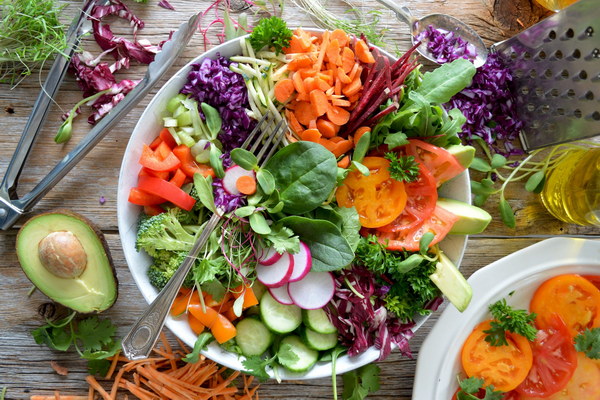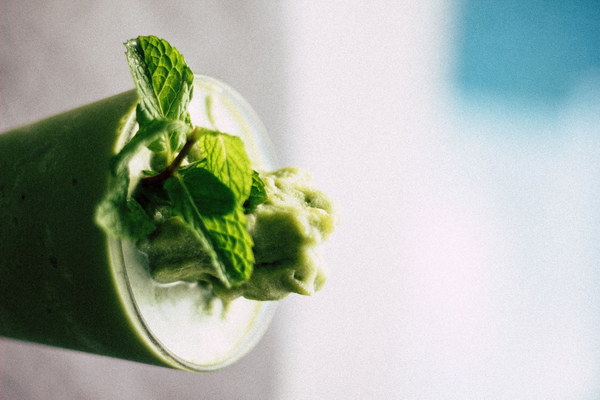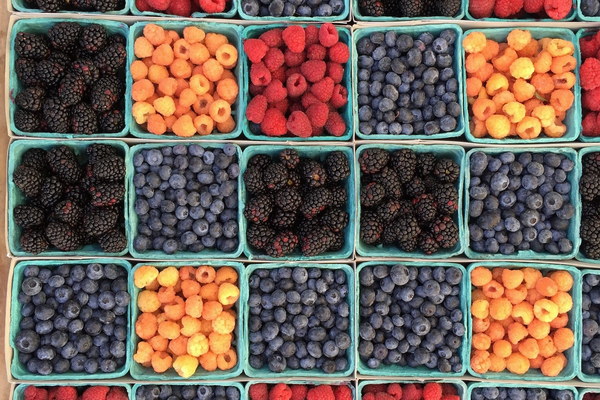Green Power How a VegetableRich Diet Fosters Liver Health
In the quest for optimal health, the liver often takes a backseat to other organs. Yet, this vital organ plays a crucial role in filtering toxins, producing bile, and metabolizing nutrients. One of the simplest and most effective ways to support liver health is through a diet rich in vegetables. Let’s delve into the world of green power and discover how incorporating a variety of vegetables into your meals can nurture your liver.
The Liver's Role and Vegetables' Benefits
The liver is a multifunctional organ that performs a myriad of tasks, including detoxification, metabolism, and protein synthesis. When the liver is functioning optimally, it can efficiently remove harmful substances from the body. However, poor diet, excessive alcohol consumption, and other factors can burden the liver and impair its ability to perform these functions.
Vegetables are packed with essential nutrients, antioxidants, and fiber that can help maintain liver health. They contain compounds such as carotenoids, flavonoids, and polyphenols, which have been shown to have protective effects on the liver.
Top Vegetables for Liver Health
1. Broccoli:
Broccoli is rich in sulforaphane, a compound that has been found to boost the liver's detoxification enzymes. It also contains indoles, which can help prevent liver damage from chemical exposure.
2. Spinach:
This leafy green is high in folate, which can help reduce the risk of liver disease. Spinach also contains chlorophyll, which is believed to help remove heavy metals from the body.
3. Carrots:
Carrots are loaded with beta-carotene, which is converted to vitamin A in the liver. Vitamin A is essential for maintaining healthy liver function and protecting it from damage.
4. Garlic:

Garlic is known for its immune-boosting properties, but it also has liver-protective effects. The compound allicin in garlic can help reduce liver inflammation and lower the risk of liver disease.
5. Artichokes:
Artichokes contain cynarin, a compound that stimulates bile production. This can aid in the digestion of fats and the elimination of toxins from the liver.
6. Beets:
Beets are rich in betalains, which have been found to have anti-inflammatory and detoxifying properties. They also help increase the flow of bile, which is important for liver health.
Incorporating Vegetables into Your Diet
Now that we understand the benefits of including these vegetables in your diet, let’s explore how to make them a staple in your meals:
- Start Your Day with a Green Smoothie: Blend spinach, kale, carrots, and a touch of ginger for a refreshing morning drink packed with liver-boosting nutrients.
- Add Color to Your Meals: Incorporate a variety of colorful vegetables into your salads, stir-fries, and soups to ensure a wide range of nutrients.
- Roast or Steam Vegetables: Roasting or steaming vegetables can enhance their flavor and make them more appealing, while preserving their nutritional value.
- Try Vegetarian Dishes: Explore vegetarian versions of your favorite meals to incorporate more vegetables into your diet without compromising on taste.
Conclusion
Eating a vegetable-rich diet is not only beneficial for overall health but also plays a significant role in maintaining liver health. By incorporating the right vegetables into your meals, you can support your liver's natural detoxifying processes, reduce the risk of liver disease, and enjoy the multitude of health benefits that come with a diet full of green power. So, next time you’re at the grocery store, load up your cart with those vibrant veggies and let your liver reap the rewards.









